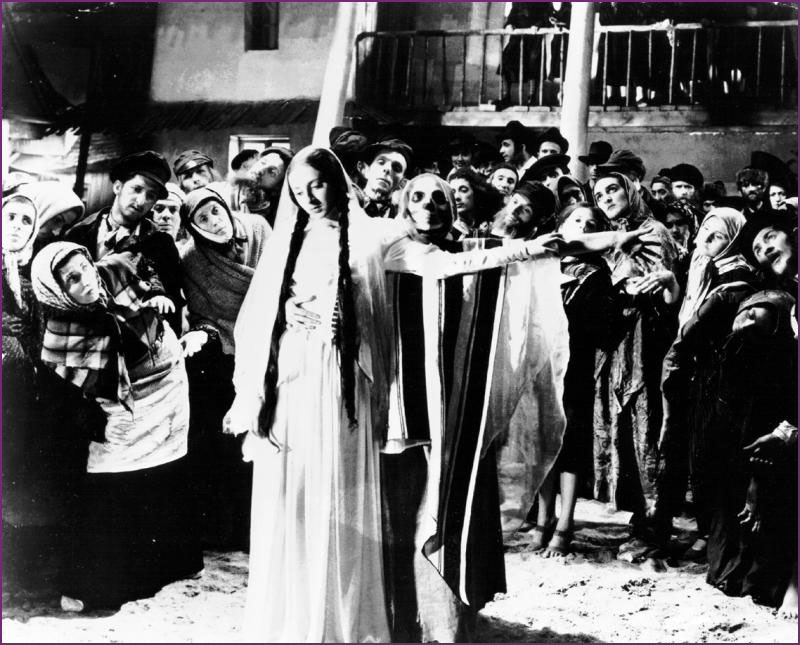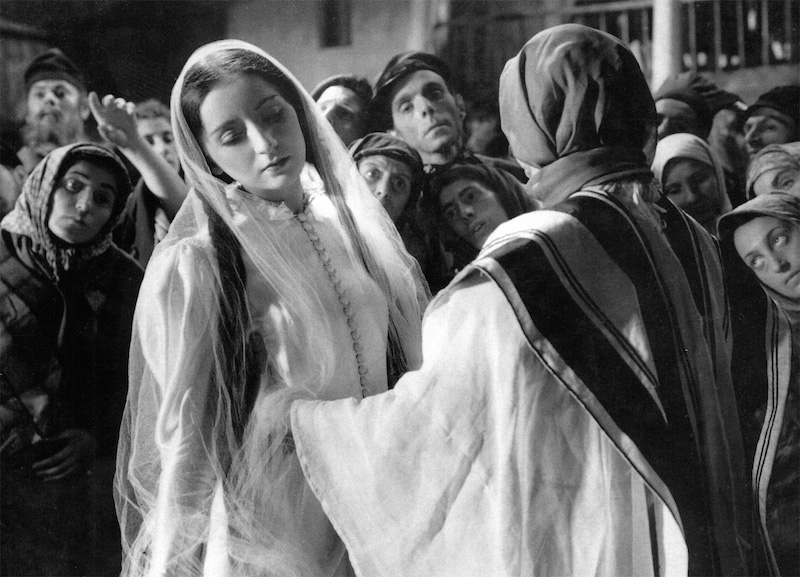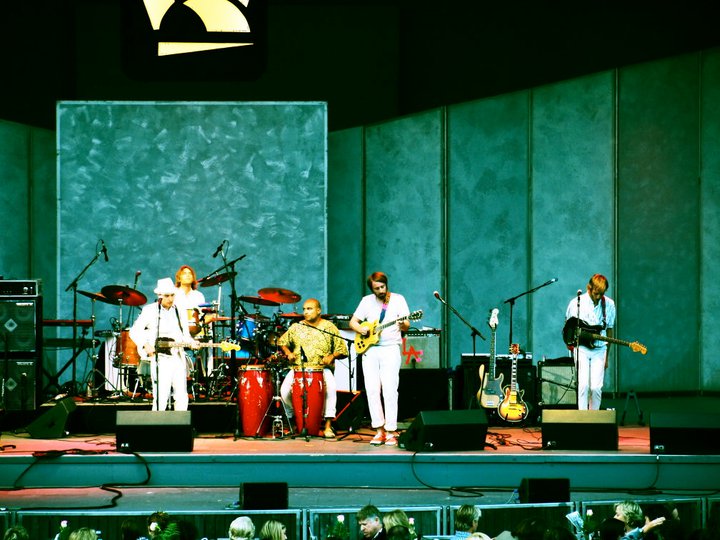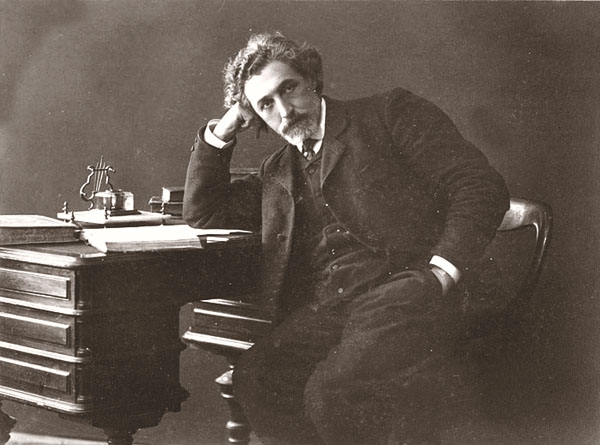Felix Posen writes:
The title of James Loeffler’s essay, “The Death of Jewish Culture,” shocked me sufficiently to want to read not only the essay itself but also the three responses to it by Michael Weingrad (“Culture and the Classroom”), Jonathan Rosen (“A Death Greatly Exaggerated”), and Abraham Socher (“Hello, I Must Be Going”). As it turned out, and despite the harshly worded title, I was impressed by many of the points in all four entries. But I feel I must still criticize a fair amount of what I read.
One “death” cited by James Loeffler was that of Makor, a “nightclub-cum-gallery” that billed itself as a “secular Jewish arts-and-culture mecca for New York’s young hipsters.” Indeed, Makor did not last long, for myriad reasons. It was essentially a meeting place for young adults, in pleasant surroundings, but it had precious little connection to what are normally referred to as cultural events. My understanding is that its precipitous closure was due to reasons totally unconnected with Jewish culture in any form.
But the mere closure of a new and small center in New York City certainly doesn’t amount to the death of Jewish culture. Neither does the unfortunate closing of the Foundation for Jewish Culture, which provided much-needed funds for musicians, painters, dancers, and writers. Far from indicating the “death” of Jewish culture, this simply means there will be less money and opportunity for artists in the Jewish field, which is indeed a pity.
Jewish culture itself, however, has been in existence and developing for more than 3,000 years. Of course, there have been major changes in terms of religiosity and secularity. Yet Jewish culture never died during the various periods of Jewish history. Even at the very height of Nazi murder in the ghettos and concentration camps of German-occupied Poland, Jewish cultural creativity (in terms of writing and music) continued secretly.
It so happens that my Foundation has undertaken the largest literary work of its kind, The Posen Library of Jewish Culture and Civilization (Yale University Press). This ten-volume set of anthologies, on which over 120 scholars have been laboring since 2003-2004, will include the most significant written cultural creations of the Jewish people—both religious and secular—from biblical times to the 21st century. Volume 10, covering the years 1973-2005, has already been released, and final drafts of three or four additional volumes will be complete by early next year. We expect that the entire series will be published within the next five years.
The Posen Library will, among its other achievements, demonstrate the astonishing increase in Jewish cultural creativity over the centuries, particularly non-religious Jewish literary and artistic creativity during the modern, post-Enlightenment period. It will also demonstrate the great mobility of Jewish culture, commensurate in our own age with the rapid shift in Jewish population areas. At the time of my birth, Europe held the largest accumulation of Jews in the world. I spent my middle years in the United States, which had then become the center of the world’s Jewish population and intellectual activities. Now the hub has shifted again, and Israel holds the core of Jewish demography, and Jewish culture and creativity have moved accordingly.
So, just in the course of my lifetime, the vigor of Jewish cultural life has shifted, along with the sheer numbers of Jews, from Europe to the United States and from the United States to Israel, which is now the major center of cultural creativity in the Jewish world. One can see a similar shift in schools and universities to a time when, undoubtedly, Israel will be—in some areas, it already is—the world center of Jewish educational activities. This is still hard for some Diaspora leaders to recognize and accept.
I believe Jewish culture continues to grow and flourish in Israel while simultaneously decreasing in many, if not most, Diaspora communities. If one seeks reasons for this, much of the answer is related to the status of Jewish education. According to the 2001 American Religious Identification Survey/American Jewish Identification Survey (ARIS/AJIS), the majority of American Jews considered themselves ”secular” or “somewhat secular.” These findings have been reconfirmed by the latest Pew study. That the majority of American Jews are no longer religious is not a value judgment but rather a simple demographic fact.
What is now crucial is that appropriate educational opportunities be created for the children of this majority, to enable them to understand Judaism as a culture and not just as a religion. Israel has already acknowledged this reality and is teaching accordingly in the mamlakhti (public) school system, where 61 percent of school-age children are educated. One large American Jewish day school has now also started teaching Judaism as culture, with three teachers trained in Tel Aviv University’s “Ofakim” program. Other American schools are preparing to follow suit.
In his response to Loeffler’s essay, Michael Weingrad has summed up the issue both elegantly and in my opinion correctly. Teaching Judaism as culture at the college or university level is no more a means of soliciting Jews to become more Jewish than taking a class in French or Chinese culture and history is expected to convert a student to either of those nationalities. Judaism as culture can indeed be taught in as interesting and fascinating a manner as is any of the world’s great cultures, but what a student does with this knowledge is his or her business. Loeffler himself, also correctly in my opinion, states that Jewish studies is no “pathway to Jewish identity” and “no ultimate outreach tool.” As the late Yosef Haim Yerushalmi put the case, it is “up to the individual to move from indifferent history to committed memory.”
Now what? It behooves the Jewish (and non-Jewish) community to persuade universities to offer courses in Jewish culture, a subject no different from and every bit as worthy as any other major culture. Indeed, academic programs of just this kind, supported by the Posen Foundation, attracted over 50-percent enrollments of enthusiastic, non-Jewish students of all races and religions.
No: Jewish culture has not died. But, crucially and for the sake of its future thriving, we must invest in serious cultural—to repeat, not just religious—Jewish education and attract to it those who need it most: namely, the majority of the Jewish people, the secular and somewhat secular, as well as all others interested in learning about an enthralling and ancient civilization.
Felix Posen is founder and president of the Posen Foundation, dedicated to the study of Judaism as culture.
_________________
James Loeffler writes:
Felix Posen is that rare philanthropist who not only supports the cause—secular Jewish culture—in which he believes but also genuinely innovates through his charitable giving. I myself have been a beneficiary of his largesse through directed grants from his foundation to the Jewish-studies program at my university. Thus I am pleased that he has seen fit to engage publicly with my essay. I am even happier to find that he agrees with much of my argument. To my pleasant surprise, he even confirms my view that the center of contemporary Jewish cultural renaissance has shifted to Israel. But I confess I cannot square his acknowledgement that secular Jewish culture in America is in a precipitous state of decline with his confident call to respond with a heavy dose of more of the same.
In my essay, I explained why contemporary Jewish cultural secularism cannot by itself sustain a viable Jewish identity, let alone provide a meaningful, overarching framework for an entire Jewish community. In comparing our current passion for culture with Jewish Eastern Europe a century ago, I concluded that we lack the two things necessary for secular Jewishness to function: an ongoing, reciprocal dialogue with religious tradition and a thick sense of Jewish peoplehood. To these I would now add a third, language, about which I will say more below. Absent these elements, all the literary fiction, film festivals, and endowed lectures in the world will do nothing to sustain Jewish life.
Felix Posen disputes my evidence. Jewish culture cannot be declared dead, he avers, since culture itself means something much greater than any one organization or project. Rather, he argues, Jewish culture is a 3,000-year-old body of literary and artistic expression. But just as he reads my definition too narrowly, I fear his is far too expansive.
Is Jewish culture the sum total of an endless stream of texts pouring forth from a people ever shifting in its languages and homelands? To imagine it this way is to ignore the fact that the very idea of culture—as well as the word itself—is not an ancient notion but a very new one. For roughly the first three millennia of its history, the Hebrew language did not possess the word “culture” in the modern sense of the term. When the ancient rabbis used the Hebrew equivalent, tarbut, they meant it primarily in the agricultural sense of breeding. There was no concept of art or literature as a stand-alone category of expression, independent of Jewish religious life. Jews might become heretics or they might enjoy pagan Greek tavern songs. They might produce their own folk dances, witticisms, and sacred (and not-so-sacred) texts. But they did not generalize this corpus of writing and art into a self-conscious expression of group identity or a standard of elite human achievement.
All this began to change in the Jewish encounter with European modernity in the late-18th century. Lacking a command of the intellectual and cultural riches of the outside world, Jews suddenly felt inadequate. It was not enough to hold fast to God’s Torah, the Jewish intellectuals of Enlightenment Berlin argued; one must also embrace torat ha’adam (secular humanist knowledge). In the 19th century, German Jews responded by elevating kultur and bildung (self-cultivation) to the highest human value.
For their part, the East European Jewish writers who entered the scene in the closing decades of the 19th century castigated their German cousins for their slavish devotion to becoming model Europeans at the cost of their Jewish national heritage and languages. But the truth is that these modern Yiddish and Hebrew writers also shared the same nagging feeling of inadequacy. When they spoke of creating tarbut or kultur or kultura, they, too, acknowledged that Jews lacked something necessary to function in the modern world. A people long accustomed to viewing themselves as more learned than their European Christian neighbors awoke in the 19th century to find themselves playing civilizational catch-up. Many came to think that the Jewish religion itself presented a parochial obstacle to human creativity and excellence.
As the historian Kenneth Moss demonstrates in Jewish Renaissance in the Russian Revolution, writers like Ahad Ha’am and Hayyim Nahman Bialik proposed culture as the means by which Jews, despite the deep political and religious fissures among them, might find both fulfillment as individuals and wholeness as a people. In fact, Moss reminds us, the challenge they faced was rooted precisely in this tension: how could culture’s promise of individual freedom—intellectual, artistic, and political—be reconciled with its vision of a shared national mission? Their solution came in the form of language. Writing in a Jewish language would allow poets, playwrights, and novelists a radical freedom of expression within the discrete bounds of a Jewish republic of letters. Further, the biblical and rabbinic traditions, which had left their indelible marks on Hebrew and Yiddish, ensured that a secular Jewish culture would remain dialectically linked to its religious antipode.
That solution, together with the achievement that has flowed from it, is on full display in modern Israel today. A secular culture succeeds in Israel through the revival of the Hebrew language and the persistence of religion and peoplehood. In an environment suffused with those elements, it is not hard to produce a viable Jewish secularism.
American Jews, however, possess fewer and fewer of those individual elements, let alone all of them as a package. For a while, dramatic historical events—mass immigration, the Holocaust, the birth of Israel—made up for some of the lack. As those events recede farther into the past, American Jews seeking to renew their communal sense of Jewishness will need to look beyond old traumas, new fears, and nostalgic memories.
Felix Posen suggests that if American Jews trend secular and eschew religion, an obvious strategy of compensation is to teach Judaism in secular terms: that is, as culture. But once you legitimize culture as the replacement for religious life, you only exacerbate the same trends that have eroded Jewish identity over the past decades. As the late-19th-century Eastern European thinkers and writers saw very clearly, built into the modern notion of culture are currents of individualism and introspection fundamentally at odds with Judaism’s claims to collective responsibility and historical destiny.
Since the time of Bialik and Ahad Ha’am, those currents have only strengthened. Absent the requisite structure, the mere acquisition of knowledge, as Felix Posen proposes, may (or may not) be a road to self-satisfaction. But it is no guarantee of a meaningful attachment to Jewish life.
In closing, I want to turn from the question of how to define culture to the problematics of the term “secular.” As a college professor, I’ve more than once encountered thoughtful undergraduates who tell me they have no interest in joining our school’s Hillel because they are “secular.” When pressed to say what that means, they express doubts about or disbelief in God. At moments like that, I’m tempted to quote an Orthodox rabbi of my acquaintance who to similar objections once responded, “God? God is for goyim.”
A little crude, I admit, but dead on. The three-thousand-year tradition of Jewish thought, text, law, and ritual cannot be contained by modern Christian notions of faith and God. Even the term “religion,” as the scholar Leora Batnitzky has shown, owes more to German Protestant theological categories than it does to the reality of traditional Judaism. When American Jews speak of being secular or cultural Jews as opposed to religious, what they really reveal is the depths of their own ignorance about Jewishness. Instead of encouraging their reflexive tendency to think in those terms—that is, as just another monotheistic religion, or as just another global ethnic culture—we do better to refocus on what makes Judaism unique.
Jews did not survive 3,000 years because they loved literature and prized the written word. Nor was it mere cultural literacy that preserved Jewishness from disappearance into the neighboring societies, some welcoming and some hostile, that have always surrounded Jewish civilization. Jewish survival derived from the distinctive historical fusion of peoplehood, religious tradition, and language. In our own day, Jewish flourishing still requires the same.
_____________
James Loeffler, associate professor of history at the University of Virginia, is a 2013-2014 Mellon Fellow at Georgetown University Law Center. He specializes in Jewish and European history and in the history of human rights, and is the author of The Most Musical Nation: Jews and Culture in the Late Russian Empire (Yale, 2010; paperback 2013).
More about: American Jewry, James Loeffler, Jewish Culture, Posen, Secular Judaism








